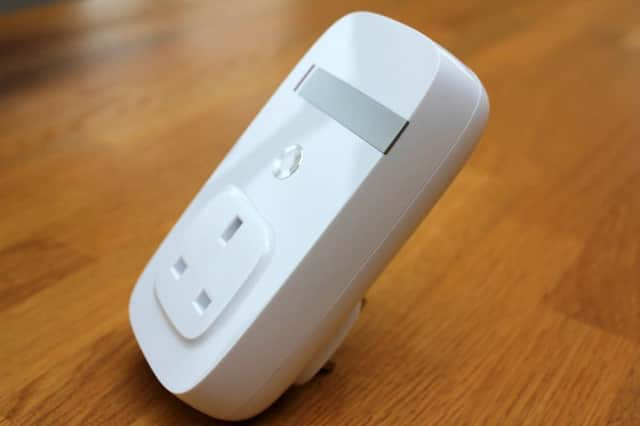Reliable (and legal) ways to boost your mobile coverage at home


Usually, when this sort of thing happens, the market becomes flooded by cheap products from China and the US, where they have been in use for years.
But that hasn’t happened this time. Boosters, or “smart repeaters”, remain the preserve of the specialist, and the best one on the market costs an eye-watering £540. That makes it a consideration for a hamlet or a small office with no signal, but not for your average semi-detached.
Advertisement
Hide AdAdvertisement
Hide AdHowever, there are still a few affordable options for improving your reception, and two of them are surprisingly low-tech.
It seems obvious, but moving to a different network may dramatically improve matters, and the coverage checker on Ofcom’s website makes it easy to compare all four: Vodafone, O2, EE and Three, wherever you live. The smaller networks like Tesco Mobile, Virgin and Giffgaff all piggyback on one of those, so everyone is covered – but do make sure you look at indoor signal strength, because there is often no comparison with that outside. And remember that changing to a different network doesn’t mean changing your phone number if you don’t want to.
If you’re often at home, diverting your incoming calls to your landline is an even easier option. You can do this from your mobile, so long as you have a signal when you want to turn the service on or off. Texts can’t be diverted, but you can use other messaging services instead. WhatsApp and Facebook Mobile are the best-known alternatives; they can just use wi-fi when there’s no mobile signal.
If, however, you want a heavier-duty solution, a more recent service known as Wi-fi Calling may work for you. It requires a compatible handset, network and tariff, but if you can tick all three boxes you’ve hit the jackpot.
Advertisement
Hide AdAdvertisement
Hide AdThe four main networks all offer Wi-fi Calling to some degree, but not on all phones. Some insist that you buy your handset direct from them, so they can install their own software; others restrict availability to certain monthly contracts. And all maintain a list of models they will and won’t support. These change all the time, but there tend to be more iPhones than Androids included.
Among the budget networks, ID Mobile claims to support a reasonably extensive list of Apple, Samsung, Huawei and Sony phones. As with the other networks, calls you make using wi-fi are still counted as part of your mobile tariff.
The most robust type of signal booster is known as a Femtocell device – a discrete unit that plugs into a 13amp socket and your broadband router, and creates a mini mobile transmitter in your house.
It’s not legal to buy these on the open market but it’s fine for your network to sell you one. Unfortunately, in the UK, that restricts you to one or maybe two.
Advertisement
Hide AdAdvertisement
Hide AdVodafone’s Sure Signal generates a hotspot for up to eight phones with a radius just big enough to cover the average house. Passers-by on the same network won’t “see” it because you have to register with Vodafone the numbers you want it to cover. So it’s no use for guests.
There is a one-off cost of £69 for the Sure Signal, but you may be able to find one for less on Ebay – although do check first that the previous owner has unregistered it. Three does not seem to be offering its similar Home Signal box at the moment, but it may still be worth asking if you can get hold of one.
None of this is quite the free-for-all some were expecting when the rules changed, but at least you need no longer be completely cut off.